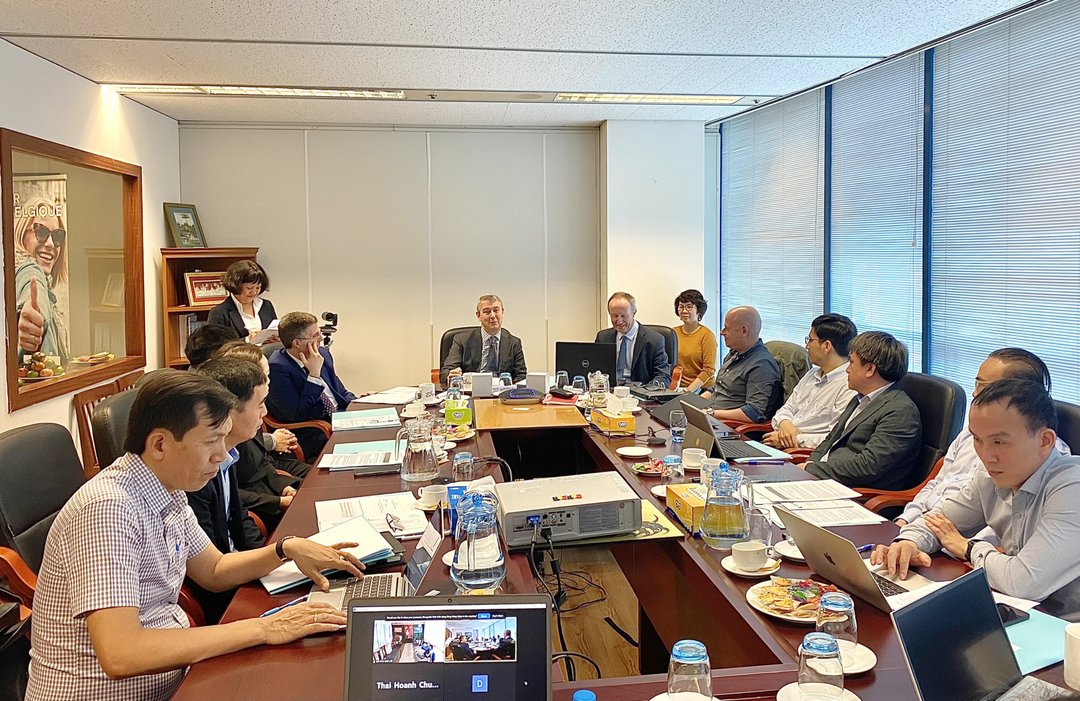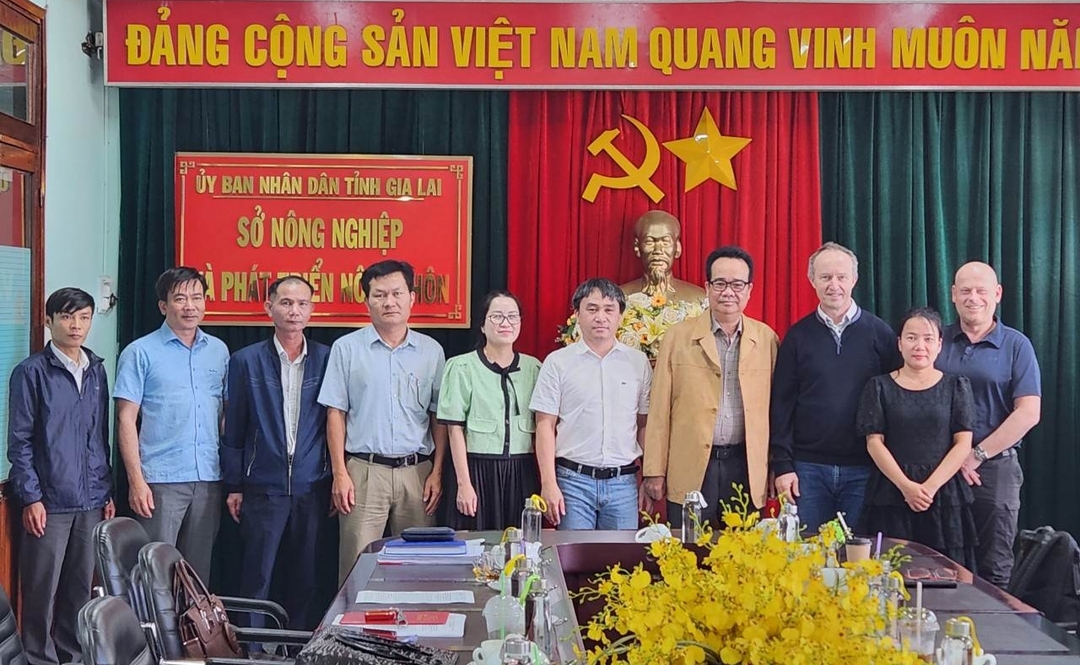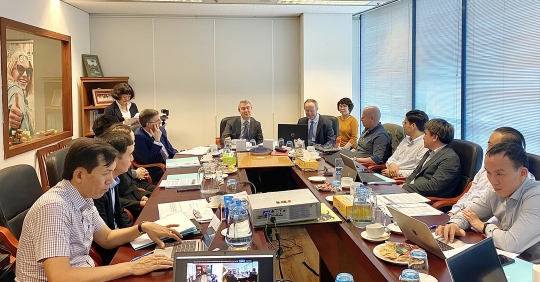
On February 21, in Vietnam, the Wallonia-Bruxelles Delegation (WBI) organized a workshop “Drought: water needs and capacity for Coffee in the Central Highlands.
The aim of the workshop was to summarize the project “Assistance in the construction of the drought observatory” and to start the project “Analysis of water needs, capacity and supply for coffee crops in the central highlands”.
Speaking at the seminar, Prof. Bernard Tychon from the University of Liège said Vietnam is currently facing the challenges of climate change with increasingly severe droughts. The project “Support for the establishment of a drought observatory” has achieved certain results.
Prof. Bernard Tychon hopes that the results of the “Support for the Establishment of Drought Observatories” project will be applied in practice to help Vietnam analyze water demand and water supply capacity for coffee crops in the central highlands of Gia Lai Province.

Prof. Bernhard Tychon and Dr Irrigation, Center for Agricultural Advice, Head of the Project for the Transformation of Sustainable Agriculture (VnSat) of the Province of Gia Lai during a business trip.
This is also money for the project “Analysis of demand, capacity and water supply for coffee cultures in the central highlands of Vietnam”.
The project is supported by the Wallonia-Bruxelles Diplomatic Service (WBI). The University of Liège, Institute of Agricultural Planning and Design (MARD), in collaboration with the Industrial University of Ho Chi Minh City and the University of Natural Sciences – Vietnam National University, Ho Chi Minh City, has contributed to the implementation of the project .
This project arose against the background that the Vietnamese coffee industry has created many jobs and made important contributions to the economic development of the country, especially in the central region and the central highlands.
However, coffee production still faces many problems, mainly due to increased water consumption and irrigation needs. In addition, drought, the effects of climate change and unstable rainfall also affect coffee production.
The partners believe that the project “Analysis of needs, capacity and water supply for coffee crops in the Central Highlands of Vietnam” carried out in the period 2022-2024 will help the Vietnamese side to better understand the situation Drought impact on the environment , socio-economic Conditions in coffee-growing regions. At the same time, gathering information on water supply needs and a cost-benefit analysis will be integrated into the project’s feasibility study.
The representative of the government of the French-speaking Belgian community and the government of the Belgian region of Wallonia in Vietnam, Nicolas Dervaux, said he was ready to support Vietnam so that these projects can be implemented effectively.
At the workshop, too, experts, scientists and municipalities submitted forecasts, analyzes and assessments of difficulties and advantages in supporting the water supply.
Previously, Vietnam had experienced many periods of severe drought. The first time took place in the period 1994 – 1998 and the last time in the years 2014 – 2016 caused large damages in agricultural production, up to 70%.
The project “Support for the establishment of a drought observatory” is being carried out with the aim of enabling faster detection of potential agricultural disasters through an early warning system; best determine the required impacts by mapping livelihood vulnerability indicators to climate change; develop a separate strategy for each location in order to reduce farmers’ losses as a result of climate change.
After the project implementation phase (2019 – 2021), an early warning system was put into operation.

